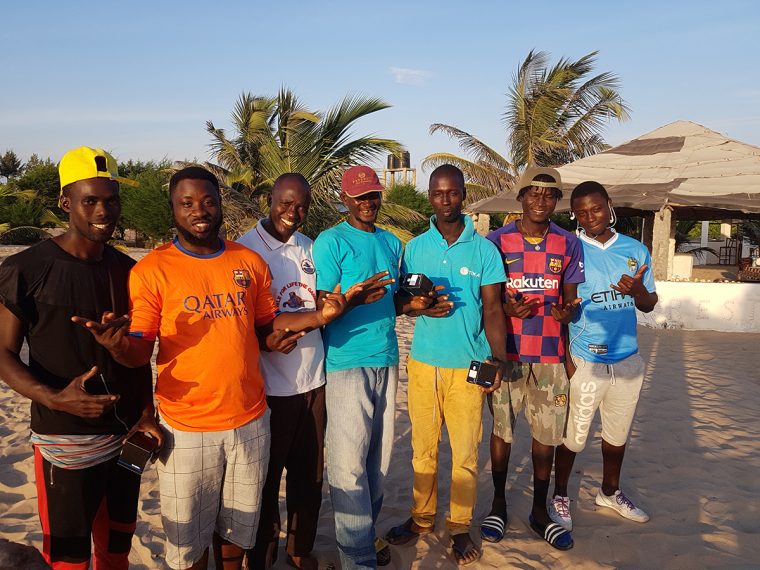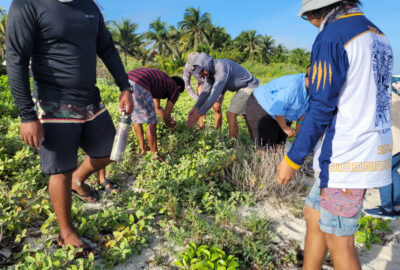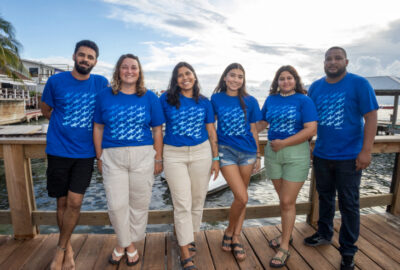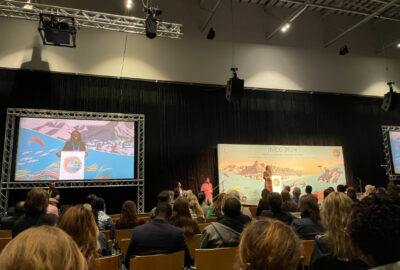Please note: We strongly recommend purchasing tickets in advance to guarantee entry, as we do sell out during school vacation week (April 19 – 27).
We went to The Gambia - Part 2
By New England Aquarium on Tuesday, December 29, 2020

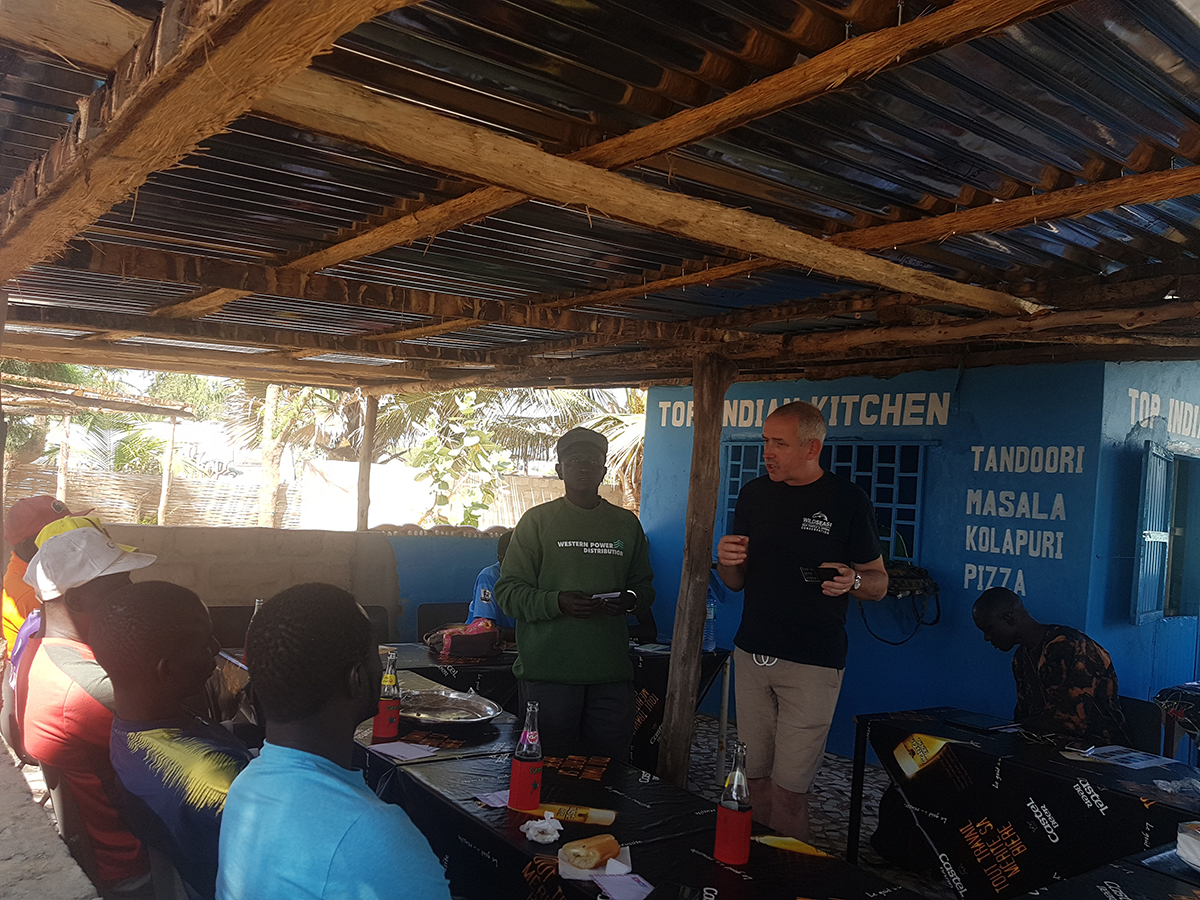
This post is one of a series on projects supported by the New England Aquarium’s Marine Conservation Action Fund (MCAF). Through MCAF, the Aquarium supports conservation leaders around the world as they work to address the most challenging problems facing the ocean.
In 2012, MCAF Fellow John Flynn, founder of Wildseas, launched a successful sea turtle conservation program in Ghana in collaboration with fishermen and a local team. Through their Safe Release Program over 1700 sea turtles have been saved from fishing nets. In this blog, Flynn describes the Wildseas team’s recent initiative to start a Safe Release program in The Gambia with a local NGO, Smile for Life.
We are back to you once again following on from Part 1 of our “Think Global, Act Local” sea turtle conservation adventures in The Gambia.
As global events have unfolded it has been a strange year to say the least with restrictions, lockdowns, travel difficulties and many other challenges. For us though the challenge is protecting and conserving sea turtles. The Wildseas “Safe Release” program in Ghana continues to ensure the release of by-catch sea turtles in association with the artisanal canoe fishermen. Being so successful we introduced a similar concept in The Gambia in association with local Gambian NGO Smile For Life.
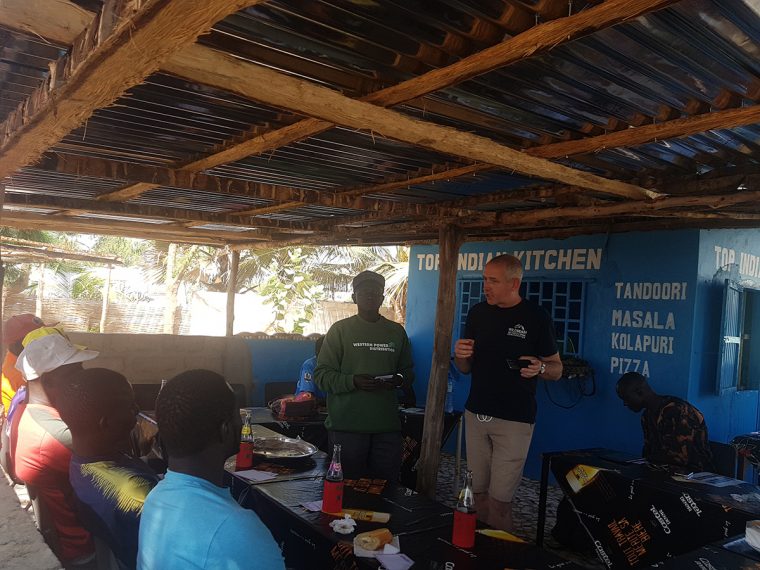
The program has been running for some time now however, as local fisheries were closed for quite some time due to circumstances beyond the fishermens control, the activity we expected hasn’t fully come to pass just yet. We are delighted to report though that the program has been very well received and prior to the travel difficulties both John, Wildseas Founder & Conservation Director, and Eric, Wildseas Country Head Ghana, returned to The Gambia to ensure things were going in the intended direction.
Once again our efforts were primarily focussed in and around Sanyang and the artisanal fishermen who operate from the village. While a number of turtles had already been successfully released through the program we could sense in the fishermen that they were hoping for something more from the initiative. Despite having been informed about the ecological roles of sea turtles, and how more turtles means healthier fish stocks, the reality is that we were asking the fishermen to simply give up what in essence was either a saleable turtle or possible food source for their family and receive nothing in return.
While the law may protect turtles locally, in the real world these fishermen still have to eat, provide for their families and make a living. The name of the game is survival and while the law and ‘lofty ideals’ may sometimes protect turtles, asking the fishermen to go without for no beneficial return or reward was optimistic. Therefore, on our return trip to The Gambia, we decided to introduce a new aspect to the program – something we hoped would encourage the fishermen to participate more actively in the initiative and reward them fairly for their efforts.
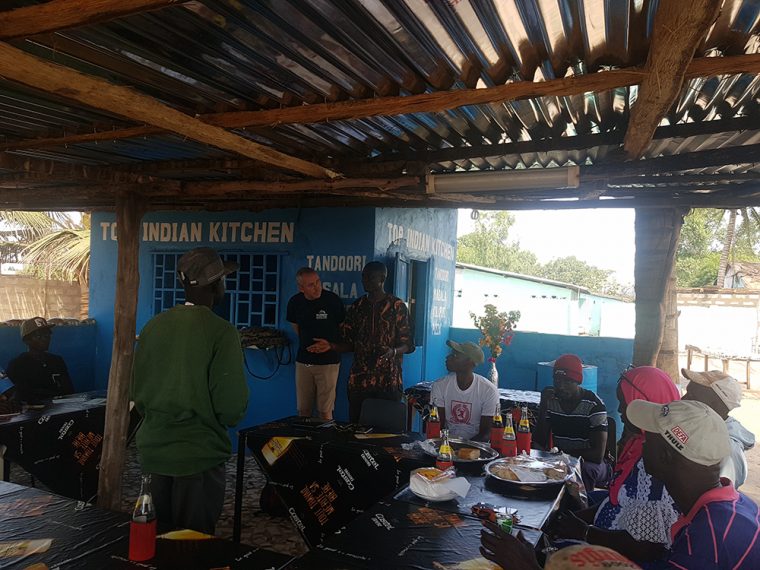
A meeting with the fishermen was set at a local beach resort, sandwiches, snacks and cool drinks were ordered and the fishermen trickled in one by one for the big announcement. Once formalities were completed (there are always lots of formalities in these situations!) we introduced the rewards program to the fishermen. We explained that from now on when a fisherman hands over a turtle he would receive a ticket for the rewards program. Once a certain number of tickets had been issued the program would take place and the fishermen would be in with the chance of receiving with a new bicycle, accessories, and /or net mending equipment. This was very well received by the fishermen and they committed to the initiative with renewed vigor and enthusiasm.
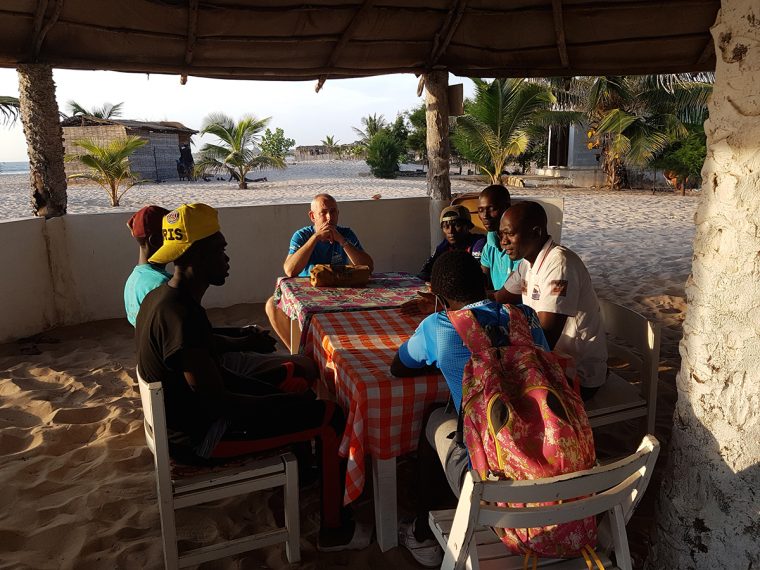
The the lockdown came. Enough said. Once things slowly started to return to some semblence of normality, word of the rewards program reached the larger port of Tanjeh where we had previously conducted an education program. The fishermen of Tanjeh have officially asked to be included and are equally willing to hand over a turtle in return for a ticket. After Wildseas introduced this new element to the program, Smile For Life set about finding longer term support for the rewards program. We are thrilled to tell you that they have now successfully secured this support in country which will bring long term sustainability to the program and offer more bycatch turtles freedom and another chance at life.
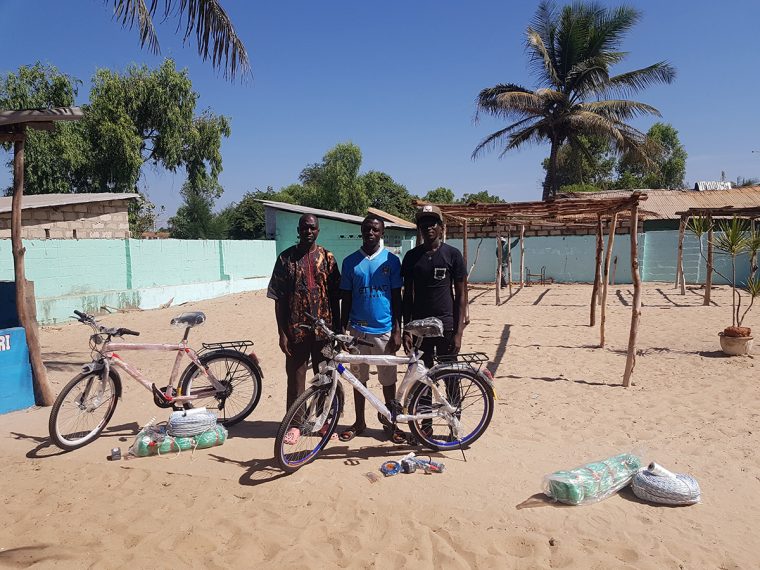
Thanks to the support of the Marine Conservation Action Fund we were able to launch the initial program back in 2019 and that support marked a turning point for the better for sea turtle conservation in The Gambia.
Today the fishermen know there is no guarantee that they will receive something for handing over a turtle so it can have a second chance at life and that there is luck involved. They participate and spare the turtles lives for the hope value. And hope is something that keeps us all going, it’s what gets us out of bed each day. It’s what makes us want to make the world a better place. For humans, for turtles, for life.
